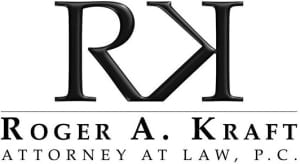Zombie Foreclosures Dropping Throughout The Country
Zombie foreclosures occur when a vacant home isn’t repossessed by the bank. There are fewer zombie homes now than this time last year.
As horror fans across the country prepare for new seasons of their favorite zombie shows on TV, many homeowners are dealing with a different type of zombie that is real and has the potential to be devastating. The term “zombie foreclosure” has been given to homes that sit vacant in Utah and every other state in the country, after their owners were unable to overcome their overwhelming financial challenges. These homes, for a number of reasons, were then left to sit as banks failed to complete foreclosure processes and repossess the homes.
The reason these homes are called zombies, states Reuters, is because once they are vacant they become a threat to the surrounding community. The landscaping dies off or becomes overgrown while the homes fall into disrepair, creating an eyesore for the neighborhood. The property can become a new home to insect and rodent populations, creating the risk of infestations and disease. Perhaps most disturbingly, zombie homes can also attract squatters or drug dealers, creating a serious public safety risk.
Why Do Banks Allow Zombie Foreclosures To Occur?
For many people, it would make sense that once a house is vacant, the bank that owns the mortgage should take it back and get it ready for resale. This is the ideal situation, not only for the neighborhood but for the homeowners who were forced to leave. When a bank repossesses a home, it allows the former homeowners to move on and rebuild their lives. If the bank does nothing, homeowners may face numerous financial repercussions years later, such as fines, property taxes and even creditor harassment for the home loan.
However, banks may decide it isn’t in their best interests to repossess an abandoned home. They may consider it not worth their effort and expense to prepare a home with low value for the market. This has resulted in some zombie homes menacing neighborhoods for years, lowing the value of the surrounding homes and frustrating neighbors who can’t do anything about it.
Some Lenders Starting To Fight Back Against Zombies
Fortunately, states CNBC, some banks now have been allowing fewer of their foreclosures to turn into zombies. In many areas of the country, foreclosure processes have been streamlined and banks are able to move homes back to the market before allowing the properties to depreciate. Home prices have been increasing, making it more attractive for lenders to resell the home quickly.
According to RealtyTrac, the numbers of national zombie foreclosures have dropped 10 percent from this time last year. Currently there are about 127,000 vacant houses going through the foreclosure process throughout the country. In some lower-income areas, the problem persists.
Many homeowners are still attempting to stop foreclosure proceedings and hold onto their homes. It may be possible with the help of a bankruptcy attorney to overcome serious financial setbacks by filing for bankruptcy.
Keywords: foreclosure, bankruptcy, Chapter 7, Chapter 13


